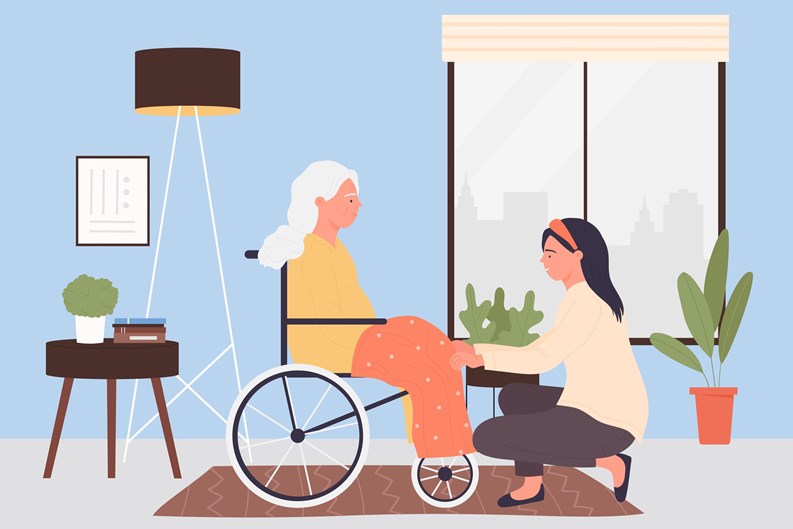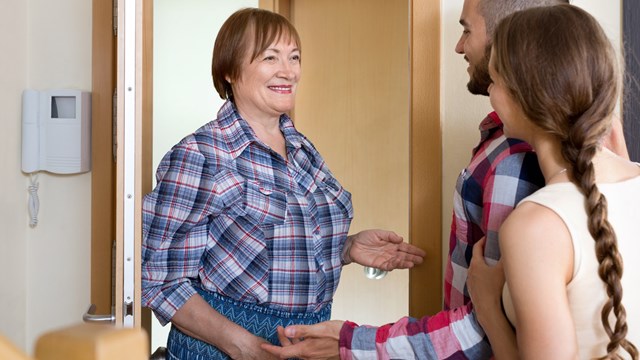Prior to the 1980s, the majority of New York City apartment buildings were rentals, owned by landlords. Then, in the 1980s, many landlords realized that it would be more financially advantageous for them to sell their buildings to the tenants who called them home. Tenant groups were formed, and often were able to negotiate a favorable price for the building. This allowed rental buildings to be converted to shareholder apartments or co-ops, and for rental tenants to purchase their apartments at a reduced rate well below market value.
Aging in Place
Many of the residents who purchased their units during this initial wave of conversions were in their 30s, 40s, or 50s at the time. They were healthy individuals, most of whom were working, with many also raising families.
Forty years later, that cohort of original shareholders has experienced a demographic shift since they first bought their apartments. They are in their 70s, 80s, and 90s, still living in the same apartment that they bought back in the 1980s. Many are now widows or widowers, and are living alone, along with those who never married. If they have children, often those children have moved away and are involved with their own life, work, children, etc.
While they may call to check in and have brief conversations, many adult children of senior shareholders are not fully aware of the condition of their parents, or their living conditions. Others may be estranged from their parents, or have predeceased them, so it’s not uncommon for aging residents to have no relatives.
Aging Residents, Growing Problems
Aging shareholders often contend with two serious problems: declining health and limited finances.
As people age, it’s of course more common for them to live with health challenges related to genetic propensity, lifestyle choices, and the aging process itself; illnesses ranging from heart problems to diabetes to mobility limitations, cognitive decline and dementia. Older residents without direct helpers or caregivers may not have the ability to seek health care, either because they cannot go alone, or do not have the resources, or both. Day-to-day housekeeping tasks may be neglected as the resident’s ability to manage cleaning deteriorates. There are other behavioral changes that can be a nuisance at best, and a hazard to the resident and neighbors alike at worst; individuals who used to keep a neat apartment may exhibit hoarding behaviors, creating problems with odors, pests, and clutter - as well as a fire hazard for the whole building, and dangerous conditions for emergency personnel who may need to enter their apartment during a crisis. Residents with dementia may also leave the gas on, or candles unattended, or may smoke in bed, which again puts them and their building at risk. They also may exhibit problematic social behaviors, such as wandering halls or other public areas of the building in inappropriate clothing, shouting or other loud vocalizations, or harassing staff members and neighbors. While these outbursts may not present a physical danger, they are certainly disruptive, and can be upsetting for everyone involved, including the resident him- or herself.
Regardless of their health status, it’s not uncommon for older adults to have outlived their resources, and be forced to make do on entitlements that are not sufficient to maintain adequate quality of life. They may even have to make a choice between buying food, or paying for medications. This is a problem that their children (if they have any) may not know about, and that their neighbors and the co-op are almost certainly unaware of.
What to Do?
When an aging resident is struggling with cognitive decline or mental illness, their behavior often creates stress for not just their immediate neighbors, but for building staff as well; empathetic as employees may be toward people they’ve known for years - even decades - as nice neighbors, it is not their responsibility to care for the shareholder. The situation is even trickier with shareholders who were never nice, who have no friends in the building, and are abusive to the staff. Sometimes the only way these folks get checked on at all is because neighbors realize that they have not seen them in quite a while, and mention it to the super or doorperson.
Often the board, managing agent (if there is one) and the co-op’s legal advisors understand there is a problem with a shareholder, but do not know what to do in order to support the resident and get them the help they need. They may decide to write a letter to the resident and/or reach out to family members if there are any, outlining the situation and setting a remediation period, after which the shareholder’s lease may be revoked, if the problematic behavior or conditions have not been sufficiently addressed. They may also consider contacting Adult Protective Services (APS) - a move that can have mixed results.
Alternative Options
In cases like this, where cease-and-desist letters, notices to cure, family outreach, and City agencies are either ineffective or undesirable, board-management teams may consider enlisting the expertise of a clinical social worker or psychologist to come in, assess the situation, interview the parties involved, and collaborate with the building’s administration and legal counsel to formulate an appropriate action plan for supporting the aging resident.
In my role as a Licensed Clinical Social Worker (LCSW), boards are often referred to me by their managing agents or attorneys to assist with these sensitive situations. Through my extensive network of resources, I can recommend individuals with the skills and experience to help stabilize struggling residents and achieve the most positive outcome for them and those around them. Solutions can range from bringing in home healthcare aides to getting family members more actively engaged, to arranging for assisted living placement, or recommending lawyers for handling guardianship cases. The goal is always to help the individual find the best way to improve his or her quality of life, and to do so in the most empathetic way possible.
Whether your co-op or condo is home to many senior residents now, or is trending that direction, it’s important for both boards and managers to realize that there are effective, empathetic alternatives to initiating evictions or other drastic measures when a senior resident is struggling.
Susan Birenbaum is the Principal and Founder of Susan Birenbaum Associates LLC. She holds an MSW from NYU School of Social Work and an MBA from NYU Stern School of Business Administration.










Leave a Comment